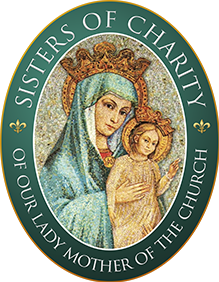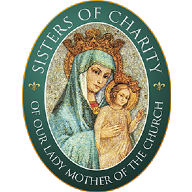Divine Dialogue of God with the Soul
Every other year on Holy Thursday, the evening on which Jesus celebrated the Last Supper, a small group of Sisters and I celebrate a Catholic Seder Meal. It is an reenactment of the Passover meal which observant Jews celebrate each year, recalling the last meal the exiles in Egypt shared before they were led out safely through the Red Sea by the power of God. The meal we share here at our convent is a lovely memorial meal which closely resembles the meal which so many Jewish families share during Passover which often coincides with our Holy Week. During the Passover meal the father of the family tells the story of salvation history with a strong emphasis on the strong emphasis on the paschal lamb which was slaughtered and whose blood saved the Jewish people from the avenging angel. Our Holy Sacrifice of the Mass is reminiscent of that first Passover supper in Egypt, since it prefigured the suffering, death and resurrection of Jesus, the true Paschal Lamb of God.
At both the Jewish Seder meals and at our Catholic Seder meal reenactment, each person at the table dips a finger into a glass of wine and places a drop of the wine (juice) on the dinner plate:
this is done ten times, to recall the ten plagues which were visited on the Egyptians, by which God warned Pharaoh to release the Jewish people from bondage.
I’m telling you this because the ten drops of wine placed on the plate represent the spilled blood and the suffering of the Egyptians before Pharaoh finally released the Jewish people. Even to this day at the Passover meals in Jewish households there is a remembrance of the sorrow of their captors in Egypt before Pharaoh gave the word to ‘let the people go.’ This always touches me during our Catholic seder meal reenactment with the Sisters before our Holy Thursday Liturgy later in the evening.
Today’s Gospel is taken from John, chapter 13, the first of many chapters describing Jesus’ conversation with His Apostles in the last hours before He was sold by Judas (for thirty pieces of silver) into the hands of His enemies which culminated with His death on the cross. The reading begins with these words:
When Judas had left them, Jesus said… ‘Love one another. As I have loved you, so you also should love one another. This is how all will know that you are my disciples, if you have love for one another’ John 13:35.
How fitting that Jesus would say this just after Judas left to gather the enemies of Jesus to bring them to the garden where he knew Jesus would go to pray after the Passover supper. The apostles didn’t know what was about to happen, but they certainly would hear about it later from Peter, James and John who were with Him in the garden when Judas and the rabble came for Jesus.
I wonder if Jesus was preparing the apostles for the terrible anger they would feel toward Judas, and for all who would be responsible for the passion and death of Jesus. Perhaps He was imploring them to put aside their anger and find it in themselves to forgive His captors, even as He himself would say on the cross, Father, forgive them, for they do not know what they are doing.
As the present day Jews experience a moment of sadness—and forgiveness—for their captors in Egypt before they were freed by the blood of the paschal lamb, signified by this brief moment during the yearly remembrance at their Passover meal, Jesus uses a sacred moment during the last meal shared with his beloved apostles to remind them that the hallmark of His followers, of all Christians, would be the love—the unconditional love—we have for one another.
How nearly impossible it seems to forgive someone for his actions toward us. How painful to strive to dredge up mercy for one who has ruined the life of a loved one. How hard to love unconditionally one who does not ‘deserve’ our love. Yet, this is the command of Jesus, His dying wish: Love as I have loved. Father, forgive them.
Jesus, meek and humble of heart, make my heart like Yours.



 and then
and then